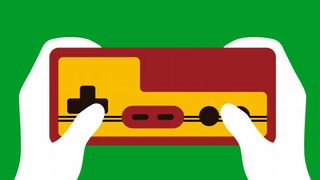Nintendo is building a sleep tracker, but you won't actually wear it
Mario wants you to get your eight hours

Nintendo's mysterious 'quality of life' project is finally beginning to take shape, with the company announcing that it's working on a sleep-tracking device.
But what's most interesting about this product is that it isn't a wearable. Nintendo's gizmo is designed to work independently; it doesn't need to touch your body, it'll have very little waiting time, and apparently requires minimal setup.
The device, announced by Nintendo CEO and president Satoru Iwata in an investor briefing, uses radio waves to monitor a user's heart rate, movement, respiration and fatigue. It then fires that data over to servers for analysis.
The device is being built in collaboration with RedMed, a US manufacturer of technology for people with sleep disorders. Users will receive frequent updates about their quality of sleep, which will be sent to smart devices and dedicated Nintendo gaming platforms.
We won't be seeing it for some time though, as Nintendo is planning to launch its Quality of Life program in 2016.
Sleep cycle
"We expect the QOL-improving platform to provide us with new themes which we can then turn into games that operate on our future video game platforms too," said Iwata. "Once we have established such a cycle, we will see continuous positive interactions between the two platforms that enable us to make unique propositions."
The Wii Fit franchise was Nintendo's first foray into health, and proved a massive success for the company. But with a market now flooded with Fitbits, Jawbones and the likes, it'll be harder to stand out.
Get daily insight, inspiration and deals in your inbox
Get the hottest deals available in your inbox plus news, reviews, opinion, analysis and more from the TechRadar team.
However, let's not forget that Nintendo has taken a variety of forms in its long lifetime, venturing into playing cards, love hotels, food, and even a taxi service, before it started making games. So we have faith that it can pull off health tech too.
- Nintendo 2DS - barmy or brilliant?
Via Yahoo News
Hugh Langley is the ex-News Editor of TechRadar. He had written for many magazines and websites including Business Insider, The Telegraph, IGN, Gizmodo, Entrepreneur Magazine, WIRED (UK), TrustedReviews, Business Insider Australia, Business Insider India, Business Insider Singapore, Wareable, The Ambient and more.
Hugh is now a correspondent at Business Insider covering Google and Alphabet, and has the unfortunate distinction of accidentally linking the TechRadar homepage to a rival publication.
Most Popular



